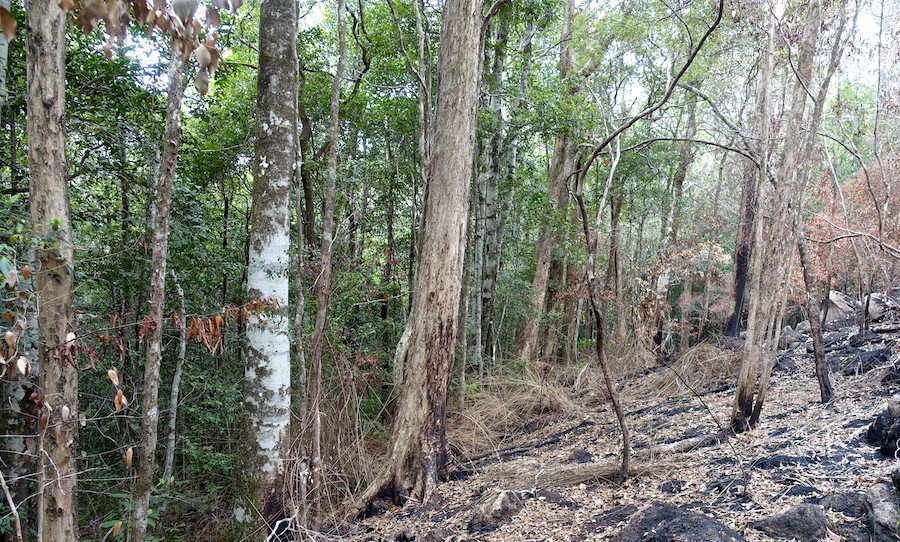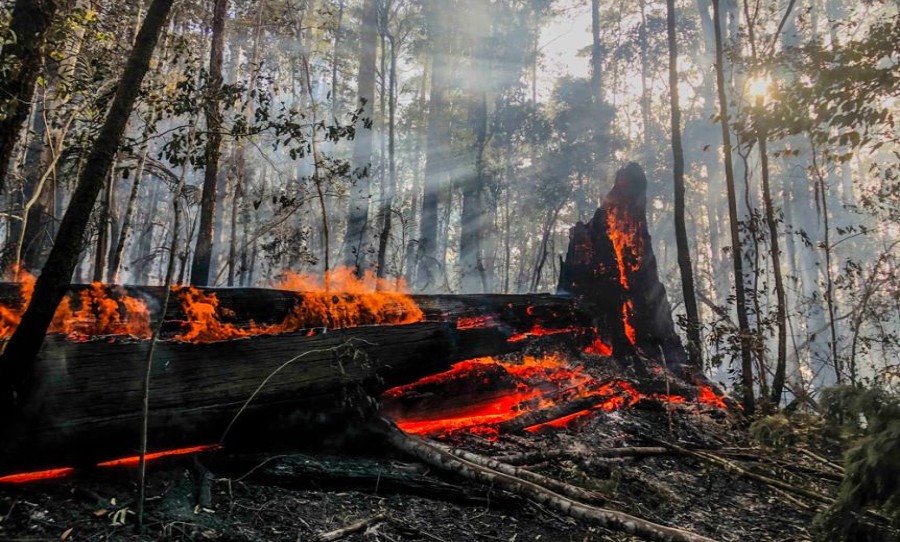A CSIRO-led study found that an estimated 100 plant species were completely burnt during Black Summer, in addition to another 816 that saw over half their population wiped out.
A warning for plant mums and dads, you might want to block the kids’ spores before you read on.
The study, published in the Nature Communications journal, mapped the fires using satellite data to analyse the impact of last year’s Black Summer on native vegetation.

Summarising its results, the study said, “Our findings show that the megafires extensively burnt a broad range of vegetation communities, including 72–83% of rainforests, eucalypt forests and woodlands, and shrublands and heathlands within individual subcontinental-scale bioregions.”
During the Black Summer fires, more than seven million hectares of eucalypt forests were burnt. Commenting on this figure, lead author of the study, Dr Bob Godfree, said: “To have so much burn in such a short period of time was quite staggering.”
Like a lot of Aussies, many of the species in the study (251 to be exact) are adapted to recover from bushfires. However, due to the loss of mature plants, some ecosystems are now at risk of “regeneration failure.”
More than 100 Australian plant species entirely burnt in Black Summer bushfires, study finds https://t.co/8i2llxB7p6
— Guardian news (@guardiannews) February 16, 2021
“Changes in vegetation is natural over very long time frames, but if that change occurs very rapidly it can be disruptive,” Dr Godfree said.
As well as being a nice home for Blinky Bill, Dr Godfree explained that “plants underpinned the function of entire ecosystems, providing food and shelter for wildlife and stabilising soils, as well as storing carbon.”
The most saddening finding of the study is that more than three-quarters of rainforest communities were burnt in parts of NSW, containing, “many ancient Gondwanan plant lineages that are now only found in small, fragmented ranges.”
We have identified the plant species most impacted by the 2019-2020 Black Summer bushfires. 🌱 #CSIROCollections
🤝: @Parks_Australia https://t.co/prIbGafHhD— CSIRO (@CSIRO) February 15, 2021
Importantly, the study also points out that the burnt areas were already being affected by changes to the climate, including high temperatures. The Climate Council reported in late 2019 that, “Bushfire risk was exacerbated by record-breaking drought, very dry fuels and soils, and record-breaking heat.”
The frequency of these incidents is a telling reminder of the gravity of climate change and that there is much work still to be done.



